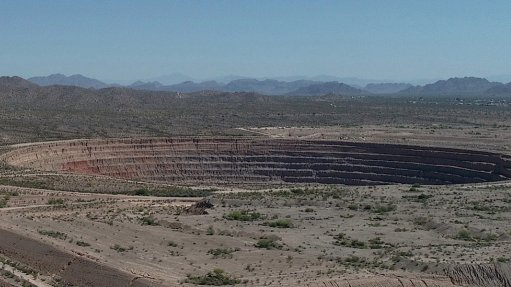Minerals Council backs Eskom leadership, urges govt to cut procurement red tape
JOHANNESBURG (miningweekly.com) – Minerals Council South Africa on Wednesday supported the Eskom leadership team in its efforts to stabilise South Africa’s electricity supply and urged government to focus on shortening the bureaucratic processes hindering Eskom’s ability to procure urgently required spares for power stations and infrastructure.
At the same time the Minerals Council urged government to consider emergency tax incentives and other smart-tape measures to encourage private-sector investment in energy generation to build on the recent raising of the licence-free cap to 100 MW.
In addition to the accelerated processes for procuring critical spares, urgent measures were needed to add additional electricity generation capacity to the network, including facilitating much greater private sector investment in generation, Minerals Council CEO Roger Baxter stated in a release to Mining Weekly.
These measures should be designed to encourage significant private sector investment in supplemental generation, such as embedded generation. The measures that could be employed to achieve this included:
- the provision of emergency tax incentives, such as the equivalent of a Section 37E tax write-off;
- shortened environmental authorisation and Eskom-related grid-tie connection processes;
- a clearer wheeling framework on the national grid; and
- ensuring a shortened smart-tape process.
These steps would encourage investments in the uncapped 100 MW projects and receive an immediate response from the private sector to invest and provide additional supply, while also significantly supplementing the existing bid window processes managed by the Department of Minerals Resources and Energy, Baxter stated.
Minerals Council members currently had 1.6 GW of renewable energy projects that they wanted to progress valued at about R30-billion, which would escalate in a smart-tape regulatory environment and with additional incentives.
The urgency of securing private electricity generation was self-evident because Eskom alone could not supply the energy the economy needed, Baxter added.
The Minerals Council expressed grave concern about the deepening crisis around electricity supply, which not only negatively affected the mining industry but the entire economy.
This was taking place at a time when energy security was critical to attract investment, for economic growth and job creation to stabilise government debt and reduce the fiscal deficit, the council stated.
Eskom’s expensive and unreliable power supply have capped the mining industry’s standout performance despite the disruptions from the Covid-19 pandemic, while constraints within Transnet on rail and harbour logistics have resulted in an opportunity loss of about R30-billion so far this year through curtailing exports of bulk commodities.
The sector sustained and grew employment in the 2020/21 financial year, trebled corporate taxes and doubled royal payments, underpinning government revenues in a tough economic and social time for South Africa.
State-owned companies have repeatedly stressed their difficulties in securing spares, infrastructural items, and contracts under the Public Finance Management Act, which makes the process unwieldy, time consuming and too difficult if not impossible.
The Minerals Council joined these entities in calling for the government to streamline the procurement processes for critically required spares and other inputs to help restore electricity supply to required levels for the economy and society.
It described calls for Eskom CEO Andre de Ruyter to step down as unhelpful and stated that his departure would only serve to exacerbate the crisis within Eskom at a time when the highest level of leadership was needed to manage the aging fleet of power plants, bring the new Medupi and Kusile stations to steady state, and improve sustainable electricity generation.
“It would be a complete disaster for Eskom. They cannot have changes in the leadership team now,” said Baxter, who affirmed that De Ruyter and the leadership team were doing the right things and needed time to fix the assets with the help of shortened, efficient and sensible procurement processes.
Article Enquiry
Email Article
Save Article
Feedback
To advertise email advertising@creamermedia.co.za or click here
Press Office
Announcements
What's On
Subscribe to improve your user experience...
Option 1 (equivalent of R125 a month):
Receive a weekly copy of Creamer Media's Engineering News & Mining Weekly magazine
(print copy for those in South Africa and e-magazine for those outside of South Africa)
Receive daily email newsletters
Access to full search results
Access archive of magazine back copies
Access to Projects in Progress
Access to ONE Research Report of your choice in PDF format
Option 2 (equivalent of R375 a month):
All benefits from Option 1
PLUS
Access to Creamer Media's Research Channel Africa for ALL Research Reports, in PDF format, on various industrial and mining sectors
including Electricity; Water; Energy Transition; Hydrogen; Roads, Rail and Ports; Coal; Gold; Platinum; Battery Metals; etc.
Already a subscriber?
Forgotten your password?
Receive weekly copy of Creamer Media's Engineering News & Mining Weekly magazine (print copy for those in South Africa and e-magazine for those outside of South Africa)
➕
Recieve daily email newsletters
➕
Access to full search results
➕
Access archive of magazine back copies
➕
Access to Projects in Progress
➕
Access to ONE Research Report of your choice in PDF format
RESEARCH CHANNEL AFRICA
R4500 (equivalent of R375 a month)
SUBSCRIBEAll benefits from Option 1
➕
Access to Creamer Media's Research Channel Africa for ALL Research Reports on various industrial and mining sectors, in PDF format, including on:
Electricity
➕
Water
➕
Energy Transition
➕
Hydrogen
➕
Roads, Rail and Ports
➕
Coal
➕
Gold
➕
Platinum
➕
Battery Metals
➕
etc.
Receive all benefits from Option 1 or Option 2 delivered to numerous people at your company
➕
Multiple User names and Passwords for simultaneous log-ins
➕
Intranet integration access to all in your organisation





















